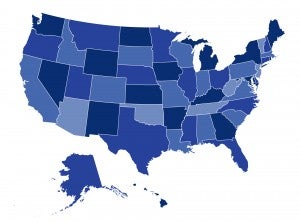Stakeholders React to HHS’s Notice of Benefit and Payment Parameters for 2020. Part 1: Insurers

On January 18, the Department of Health and Human Services issued its Notice of Benefit and Payment Parameters for 2020, which outlines the changes that it plans to apply to the Affordable Care Act marketplaces and insurance rules in the next plan year. The agency received over 26,100 comments on the proposal, including many from insurers, state-based marketplaces, departments of insurance, and consumer advocates. To better understand stakeholder reactions to the proposals, CHIR reviewed a sample of these comments, and, in Part I of this series, we summarize areas of support and concern from major medical insurers and associations.
Stakeholders React to the Administration’s Proposed Rule on Health Reimbursement Arrangements. Part 4: Consumer, Patient, and Union Organizations

In October, the Departments of Treasury, Labor, and Health and Human Services issued a proposed rule that aims to expand the “flexibility and use” of health reimbursement arrangements (HRAs). To understand reactions to the proposal, CHIR reviewed a sample of comments from state officials, insurers, consumer advocates, and employer, broker and benefit advisor groups. In Part 4 of this blog series, we highlight comments from six consumer and patient advocates and employee unions.
What, if Anything, Do the Latest Cost Sharing Reduction (CSR) Court Rulings Mean for 2020 Premiums?

The federal government could be on the hook for billions of dollars in reimbursement to insurance companies, if recent court decisions relating to the elimination of the ACA’s cost-sharing reduction subsidies are upheld. Sabrina Corlette, in her latest Expert Perspective for the State Health & Value Strategies project, reviews the status of the litigation and the implications for state oversight of insurers’ 2020 premium rates.
February Research Round Up: What We’re Reading
Shopping for a Short-Term Plan? The Information You Get about it Will Depend on Your State

Stakeholders have expressed mixed views on the value of short-term limited duration insurance. However, most seem to agree that, at a minimum, consumers should know what they are purchasing. States have the authority to require insurers to provide disclosures in addition to the federal minimum standard. We looked at short-term disclosures in four states – Nebraska, North Dakota, Ohio, and Washington – and found that a wide spectrum exists regarding the amount of detail states require their insurers to disclose.
Saying Goodbye to a Hero
Stakeholders React to the Administration’s Proposed Rule on Health Reimbursement Arrangements. Part 3: Employers, Brokers, and Employee Benefit Advisors

In October, the Departments of Treasury, Labor, and Health and Human Services issued a proposed rule that aims to expand the “flexibility and use” of health reimbursement arrangements (HRAs). To understand reactions to the proposal, CHIR reviewed a sample of comments from state officials, insurers, consumer advocates, and employer, broker and benefit advisor groups. In Part 3 of this blog series, we highlight comments from nine employer, broker, and benefit advisory groups.
The Administration Tried to Make It Easier for States to Waive ACA Rules: Will Any Take the Plunge?

Recent federal guidance made significant changes to the ACA’s section 1332 waiver program in order to give states greater leeway to sidestep ACA rules. But the move has triggered questions about whether the waiver options the Trump administration is touting are practical for states, or even legal. In a new work for The Commonwealth Fund, Justin Giovannelli and JoAnn Volk examine how states are approaching ACA waivers in the wake of the federal policy change.
Stakeholders Respond to the Proposed Health Reimbursement Arrangement Rule. Part 2: Insurers

In October, the Departments of Treasury, Labor, and Health and Human Services issued a proposed rule that aims to expand the “flexibility and use” of health reimbursement arrangements. To understand reactions to the proposal, CHIR reviewed a sample of comments from state officials, insurers, consumer advocates, and employer, broker and benefit advisor groups. In Part 2 of this blog series, we highlight comments from ten major medical insurers and associations, who argued that stronger non-discrimination provisions are needed to prevent adverse selection and ensure stability in the individual market.


